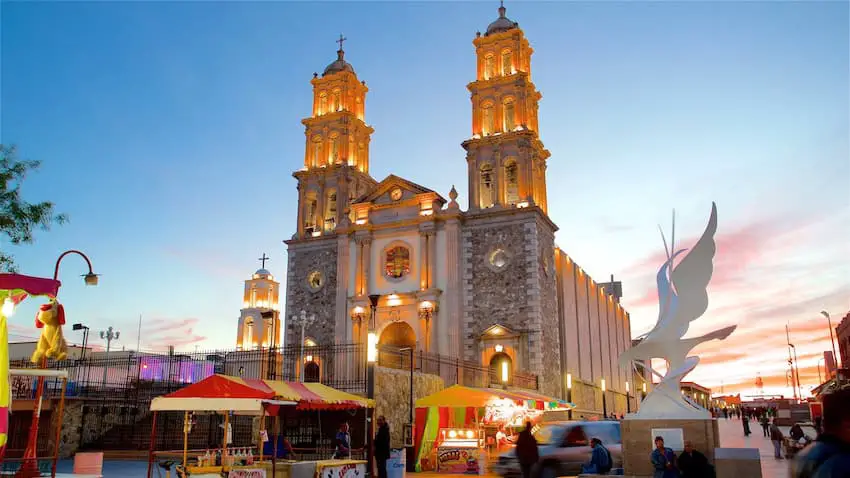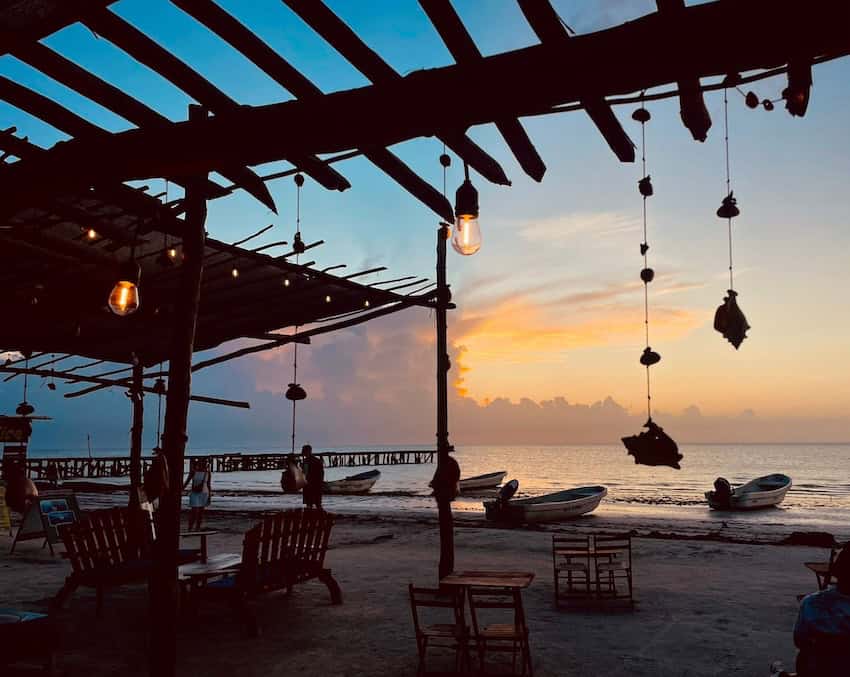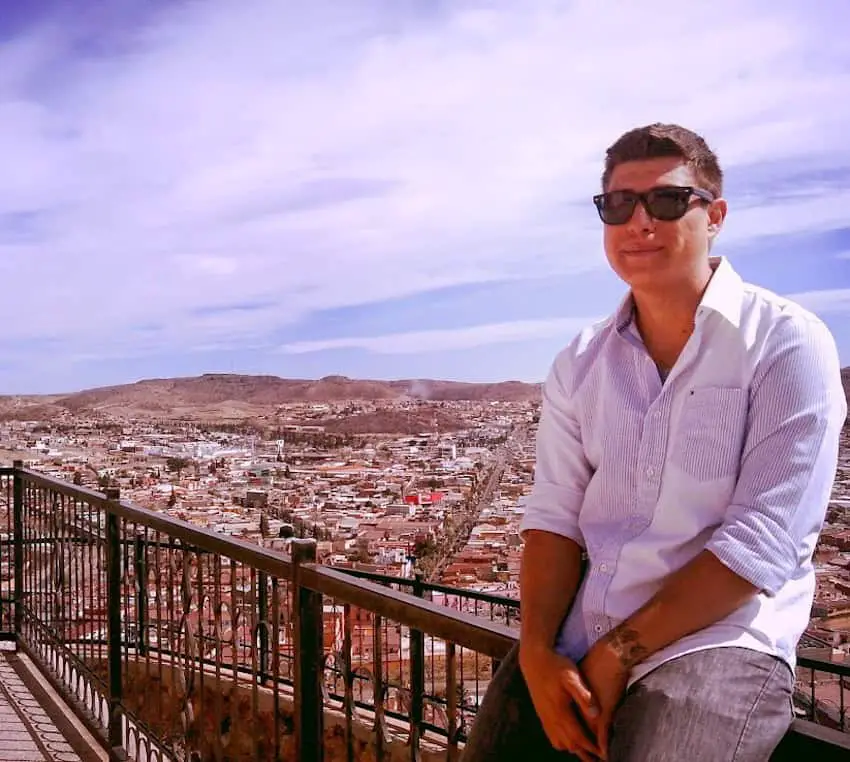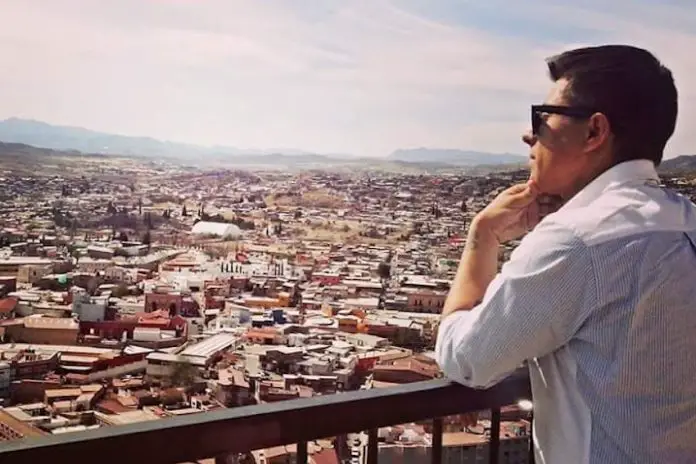In the U.S., “Dreamers” often refers to undocumented young people taken to the States as children, who’ve grown up, studied, and worked, building lives they call their own. Today, an estimated 3.6 million Dreamers live in the United States, with about 80% of them hailing from Mexico.
In 2012, the Obama administration introduced Deferred Action for Childhood Arrivals (DACA), offering temporary protection from deportation and work permits. But during the same administration, deportations reached a historic 3 million by 2016. Between 2009 and 2012, many Dreamers — some who would later qualify for DACA — were deported before they could benefit from its protections.

In this edition of our “My American Dream is in Mexico” series, we share the story of David Sandoval, a Dreamer deported in 2011, just before DACA took effect. His journey is one of struggle, sacrifice, and perseverance, and his story is both improbable and inspiring.
Returning “home” to Mexico
David was born in Chihuahua, Mexico, and brought to the U.S. by his mother at the age of four. Growing up, he made his life in North Carolina, where, at just 20, he found himself facing a life-altering situation. Pulled over for drinking and driving, he was charged with a DUI. Though he had no prior criminal record, David was informed during his court appearance that, as an undocumented resident, he would be subject to deportation. Within 24 hours, he was handed over to Immigration and Customs Enforcement (ICE).
While held in ICE custody in Atlanta, David wrestled with the idea of reaching out to his estranged father, a U.S. citizen, in a last-ditch effort to stop the deportation process. But ultimately, he chose not to contact him and instead accepted his fate. Just weeks later, he was back in Mexico, a place that was supposed to be his homeland, albeit an unfamiliar one, as he had spent nearly his entire life in the U.S.

David first stayed with family in Monterrey before moving to Chihuahua to reconnect with his roots. “I wanted to see where I came from,” he says. “It was a huge shock. Suddenly, I was in Mexico — a place I’d never really known. It was so different from the U.S., and I needed time to figure out what the hell I was going to do with my life.”
What comes next?
David struggled with what path to take. He considered illegally crossing the border into the U.S. but ultimately decided against it. “I couldn’t get a license, a house, or even go back to school,” he says. “All those doors were shut for me.” Instead, he enrolled in school in Chihuahua. His first step was a Spanish course, as his language skills were lacking. He later completed his high school equivalent in a nontraditional setting, which was a culture shock. “It wasn’t a normal school. It was the troubled class — the kids who hadn’t finished high school and were trying to graduate later in life.”
Although David’s dream was to become an astronomer, he opted for a more practical field of study: economics. For his last semester of university, David did an exchange program at Mexico City’s UNAM and fell in love with both the sprawling metropolis and a German traveler. He saved up money working as a waiter after graduating from university so they could backpack together through the Riviera Maya. After weeks of traveling and romancing, David found himself in Holbox with just 600 pesos left to his name, pondering what to do next.

Luckily for David, a former landlady from his time studying at UNAM offered to house him for free in exchange for driving her around and helping around her house while he looked for a job. David jumped on the opportunity and returned to CDMX in his Hawaiian shirt and Bermuda shorts.
“My first job was a marketing consultant, and I remember I didn’t even have socks. I was so poor I wore dress shoes to work without socks! I was getting paid $400 dollars a month and I had to survive with 70 pesos a day to cover the metro and food.” His mom, worried about the dangers of Mexico City, constantly urged him to return to Chihuahua. But David had a vision to fulfil — since his first visit to Mexico City, he had seen a future for himself in this cosmopolitan city and he decided he’d persevere.
After a year and a half in the capital, David returned to Chihuahua for a job opportunity with Rappi, leading to a new chapter in his life.
Life After Deportation for Dreamers

For many deported Dreamers, returning to Mexico after years in the U.S. is a jarring experience. Although Mexico is technically “home,” it often feels foreign, and economic struggles only add to the hardship. Many deportees face difficulties finding stable work, especially those with limited Spanish or education geared toward the U.S. job market.
David’s first job in Mexico was at a call center, a common option for deportees with bilingual skills. “Most people I worked with didn’t finish high school or college,” he says. “They just came back to try to live, but then they realize they can’t really ask for more. They’re stuck in a loop, feeling bad about not being in the U.S. anymore.”
David, however, embraced his new reality. “When I came back, I told myself, ‘I’m not going back for a while.’” He refused to live illegally in the U.S. again. “I decided to make it work in Mexico.”
David’s journey may soon come full circle. He has hired a lawyer to start the pardon process, hoping to one day return to the U.S. legally as a tourist.
Living out the Mexican Dream
After several years working in sales in Chihuahua, David’s hopes for a life in Mexico City finally came to fruition. He received an offer from a San Francisco-based tech company expanding into Mexico and moved back to the capital.
“I cried on the plane. I chatted to the guy next to me who turned out to be a successful avocado trader. He said he wanted to talk to me because I was looking out the window strangely. He assured me this move was going to be good for me and that he felt that this was the turning point for me. I cried tears of joy on that plane because I knew the cycle of hardship and sacrifice was finally over.”
Today, David works as a sales executive in Polanco and describes his life as the “Mexican Dream.” “The American Dream is about keeping up with the Joneses,” he says. “But my version of the Mexican Dream is about working hard, resting, enjoying life, and appreciating everything I’ve built.”
David’s story highlights the resilience and adaptability of Dreamers, showing that even when life’s circumstances seem impossible, there is always hope for new beginnings.
Are you a U.S.-born or raised child of Mexican immigrants currently living in Mexico? Perhaps your Mexican parents immigrated to another country, and you’ve chosen to return to Mexico? If so, I’d love to hear your story for this series! Please leave your email in the comments, and I’ll reach out.
Rocio is based in Mexico City and is the creator of CDMX iykyk, a newsletter designed to keep expats, digital nomads and the Mexican diaspora in the loop. The biweekly dispatches feature top news, cultural highlights, upcoming CDMX events & local recommendations. For your dose of must-know news about Mexico, subscribe here.
